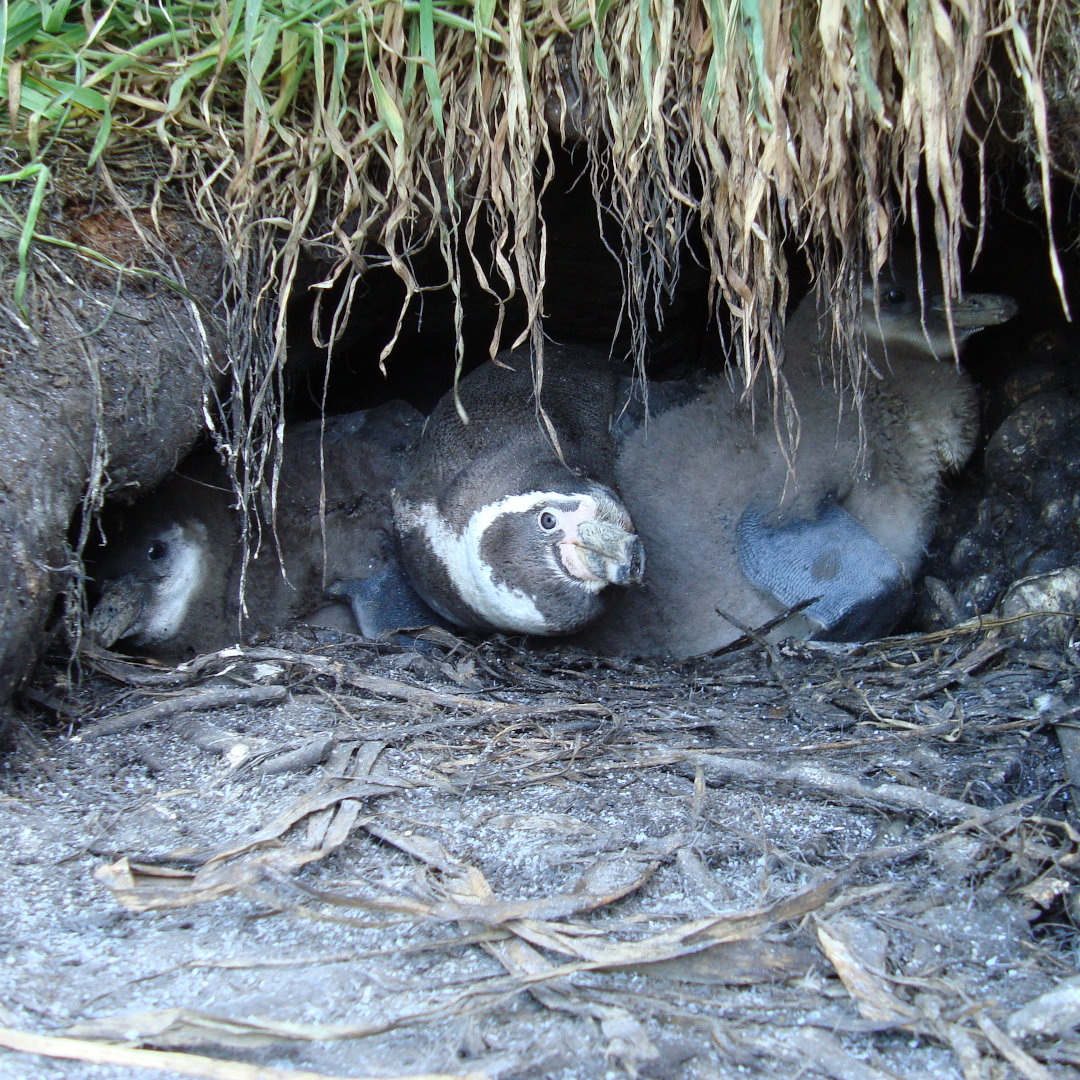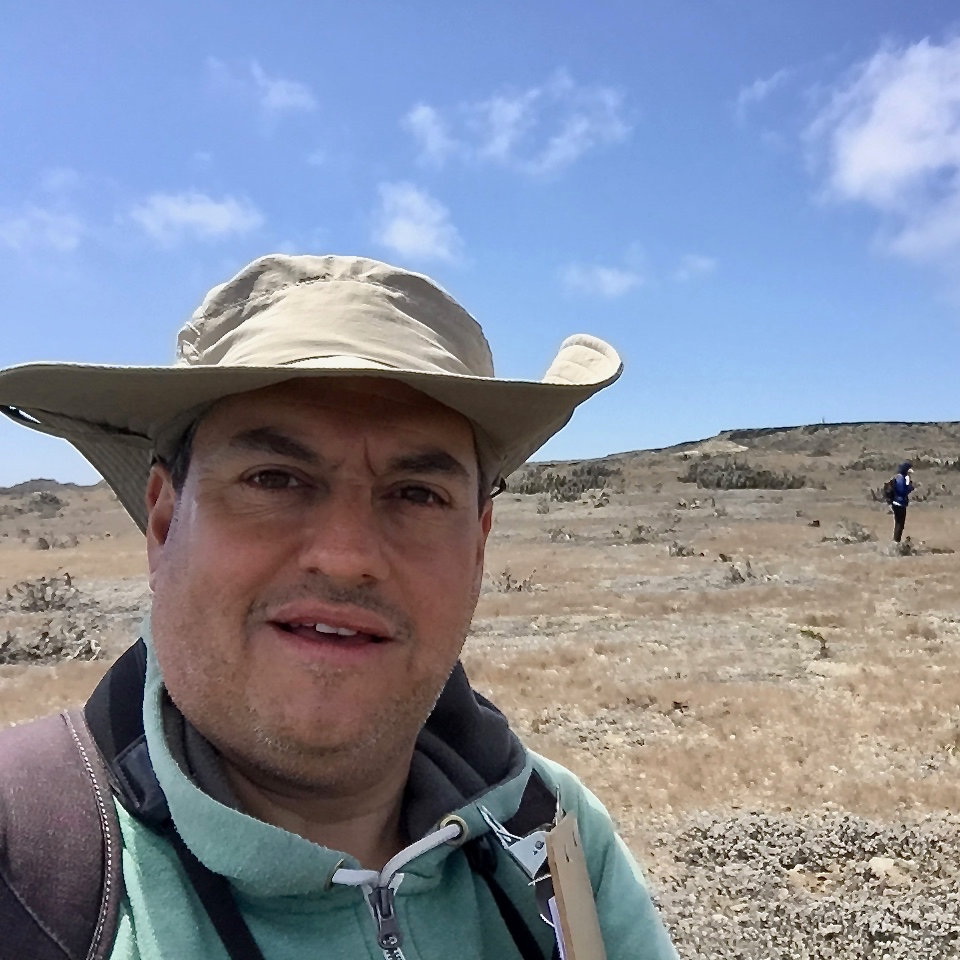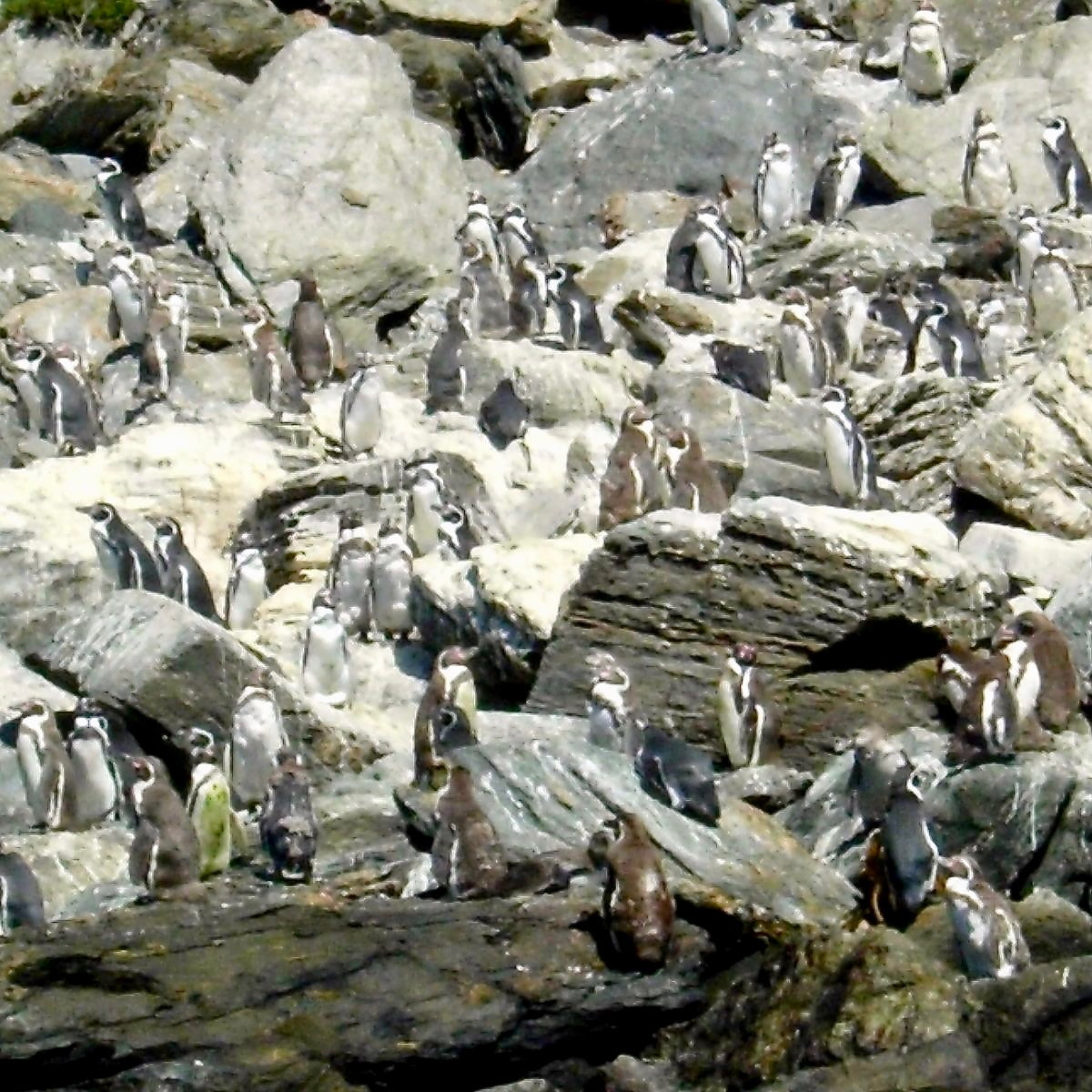Landau, June 4, 2021
How many Humboldt penguins are left in Chile? Do they breed successfully? Where do they find enough food? These are open questions that are crucial for the survival of this penguin species.
In 2019, the Conservation Planning Specialist Group (CPSG) of IUCN appealed to researchers to investigate such essential questions and fill these knowledge gaps. With prestigious Chilean and New Zealand researchers, SPHENISCO is planning an overall 6-year research project. Dr. Alejandro Simeone (University Andrés Bello, Santiago) will conduct censuses on the eight most important breeding islands in Chile, Dr. Guillermo Luna (University Católica del Norte, Coquimbo) will investigate the breeding success on the islands Chañaral and Choros and the research couple Dr. Ellenberg and Dr. Mattern (NZ Penguin Initiative, University of Otago, Dunedin, New Zealand) will collect data on foraging. The research project is funded by the Species Conservation Foundation Karlsruhe Zoo, Dresden Zoo and the Friends of Hagenbeck Zoo in Hamburg.
Humboldt penguins are threatened in their population by factors such as overfishing, climate change, artisanal fisheries bycatch, direct hunting, guano mining, egg collection, and marine pollution. These activities reduce the availability of breeding habitats, reduce breeding success, or directly cause penguin mortality. As a result, the Humboldt penguin has been listed as endangered by the IUCN for years.
During the period from 1999 to 2008, the Humboldt penguin population was relatively stable, with a population of around 33,000 birds in Chile. However, a recent study from 2017 suggests that the population may have declined to as low as 10,000 birds. Analysis and evaluation of this (possible) trend is difficult, as data from recent decades are subject to significant methodological flaws. Neither the selection of breeding sites, nor the type of counts (during molting versus during breeding) have been sufficiently stringent. It is therefore unclear what the possible decline in the last decade can be ascribed to. Does it reflect population fluctuations or is it due to methodological shortcomings?
There is little data available on the hunting grounds, diet and diving behavior of Humboldt penguins. However, a better understanding of marine ecology would be essential for the survival of this penguin species, which spends up to 80% of its life in the sea.
In the project "Deciphering population size and foraging behavior of Humboldt penguins in Chile", three coordinated studies will collect reliable data on population size, breeding success and foraging behavior. The research is funded by the Species Conservation Foundation Karlsruhe Zoo, Dresden Zoo and the Friends of Hagenbeck Zoo.
Census (Dr. Alejandro Simeone, University Andrés Bello, Santiago).
Every two years, the breeding population is counted in the eight most important colonies (corresponding to 80-90% of the Chilean population) in November and December. Other nesting seabirds such as Peruvian boobies, Peruvian pelicans, Neotropical and Guanay cormorants, seagulls will also be recorded.
Monitoring of breeding success (Dr. Guillermo Luna, University Católica del Norte, Coquimbo).
Monitoring takes place on the two main breeding islands - Chañaral and Choros. Both islands are part of the Humboldt Penguin National Reserve. Data such as timing of mating, egg laying, hatching and fledging, and breeding success are collected. The data can be used to detect breeding failures due to natural events or human intervention.
During the breeding season (early November to mid-January), the two islands of Choros are visited every two weeks. At each visit, the number of eggs, chicks, dead chicks, and fledged birds are recorded. These data are used to calculate average clutch size, hatch rate and average breeding success.
Foraging (Dr. Thomas Mattern, Dr. Ursula Ellenberg, NZ Penguin Initiative, University of Otago, Dunedin).
New Zealand scientists have advanced research using GPS loggers as well as underwater cameras, making it possible to study seabird behavior at sea. The behavior of Humboldt penguins is studied during chick rearing and the period before molting. Both periods are of crucial importance, as the survival of the adults and the preservation of the species (breeding success) ultimately depend on the ability to find sufficient and appropriate food.
The surveys are conducted in December and January on Chañaral Island and Choros Island (Humboldt Penguin National Reserve). Both penguins that are raising chicks and birds that have completed rearing and are preparing for the annual molt are studied.
The measurements will provide precise and detailed information on the birds' position and diving behavior as well as ambient water temperature. In combination with satellite-based oceanographic data, the behavior of the penguins can then be analyzed in an ecological context. In addition, the animals will be equipped with novel camera loggers. The researchers will look over the penguins' shoulders, so to speak, while they forage in order to document findings about hunting strategies, hunting success and prey species recorded (see Yellow-eyed Penguin Research https://youtu.be/U6i1CFaXvG8). The GPS and diving data will help identify important marine zones where the penguins find food, providing information for marine planning.
Actually, the project was supposed to start already in November 2020. Unfortunately, the pandemic did not allow travel in and to Chile at that time. Now it is planned to start the research work in November.
Gabriele & Werner Knauf interviewed the researchers Dr. Simeone, Dr. Ellenberg and Dr. Mattern about their plans and documented the interviews in the film "Research for Survival" (15 min.).
W.K.
translated by Angelika Veelken
Click to enlarge:





